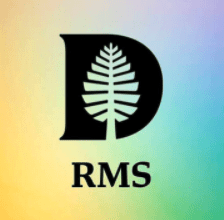RMS Statement on U.S. Social Unrest
Published on June 1, 2020
“A riot is the language of the unheard.”
—Dr. Martin Luther King, Jr.
Dr. Martin Luther King, Jr. made it clear that we have to think and act transformatively about race, oppression, and inequality in the U.S., especially in moments of crisis. His words are quoted at rallies and marches across the nation, and they are powerful. Understanding the language of action is essential for public health and the future of humanitarian and human rights around the world, in short, for the common good. The American public wants to be heard; the politicized vilification of “rioters and looters” is the last refuge of the same forces that have sought relentlessly to close off every avenue of democratic access and agency. We will not be silent about the excessive, lethal force used by the carceral police state that has also emboldened racist vigilantes and domestic abusers of women. Michael Brown, Breonna Taylor, George Floyd, and too many others yet unnamed, including trans women of color, have been assaulted or killed as a result. The social protesters in cities across the U.S. are also expressing rage against the U.S-American apparatuses of militarized force, racial fearmongering, fascistic thuggery, institutionalized misogyny, systemic transphobia, mendacious propaganda, and imperial violence. If these are not appropriate targets for rage, we cannot imagine what would be. To say Black Lives Matter is to say the least.
At this time of societal crises, we, the faculty members of the Dartmouth Consortium of Studies in Race, Migration, and Sexuality want to reiterate our resolute stance against anti-Blackness and all forms of racism and xenophobia, and to urge awareness of the long history of state-authorized, unpunished killing of African American men, women, trans men and trans women that is central to the public’s current outrage. 2020 marks the 401st year since the first enslaved Africans were brought to colonial Virginia. The legacies of racial slavery continue to reverberate in contemporary Black life in the Americas and globally. Today, we can trace the sources of that lethal violence to anti-Black, carceral state logics; white supremacist nationalism; parasitic, predatory capitalism; settler colonial dispossession; extractive cruelties; and murderous policing that have unnecessarily cost so many lives as the pandemic continues disproportionately to ravage disenfranchised communities not only in the U.S. but also around the world.
The surge of anti-Asian violence and the official scapegoating of Asian and Asian American people for the pandemic, and the disproportionate toll the pandemic has waged on African American communities are yet more symptoms of our diseased states. Black bodies are working jobs deemed “essential” during the pandemic yet are dying at alarming rates due to racial disparities in the healthcare system. Meanwhile, the murder of George Floyd and the continuous governmental disregard for the Black community in the age of COVID-19 have renewed calls for Asian American, Native American, and Latinx solidarities against anti-Black racism and the imperative of coalitional thinking and action in transnational and decolonial terms.
To our students, we love and value and want to support you. Many of us are here at RMS to listen. We are ready to act in solidarity.
We have identified a range of institutional, para-institutional, and pedagogical outlets for students as well as faculty and staff with different needs, concerns, and energies as we weather this difficult time. This community-derived list of resources suggests ways to engage in direct impact against police brutality, and also seek mediums to address collective mental health and self-care.
For donations:
The Dartmouth Student Union (DSU) has compiled a maintained list of other organizations to support and petitions to sign here.
*Please consider also donating to your local and state grassroots, legal defense, pro-immigration, and bail out organizations led by BIPOC organizers.*
For support:
– Students can contact their undergraduate deans (603-646-2243) or email the Dean of the College for support addressing concerns.
– O-Farm Community Harvest Share Interest Form (for students facing food insecurity in the Upper Valley)
– If you witness or are directly impacted by an incident, immediately contact a College official or Safety and Security at 603-646-4000, or submit the report using the Online Reporting Form. Dartmouth faculty and staff can reach out to the Office of Institutional Diversity and Equity with discrimination or harassment concerns.
– No matter where you are, if you are affected and need assistance, there are several college resources available for you, including the Counseling Center (M-F 8am–4pm: 603-646-9442; Counselor on-call, outside of office hours: 603-646-9440, the Student Wellness Center, WISE for a confidential source for gender-based violence (866-348-WISE), the Dean of the William Jewett Tucker Center (603-646-3780), the Office of Pluralism and Leadership, a supervisor or one of your faculty members.
– You may also engage with a number of student organizations, including Student Assembly, Paleopitus, the International Student Association, and the Dartmouth Undergraduate Student Union. A number of RMS faculty are also happy to connect you with these student organizations. Just email us, RMS@dartmouth.edu.
In Solidarity,
The RMS Collective
